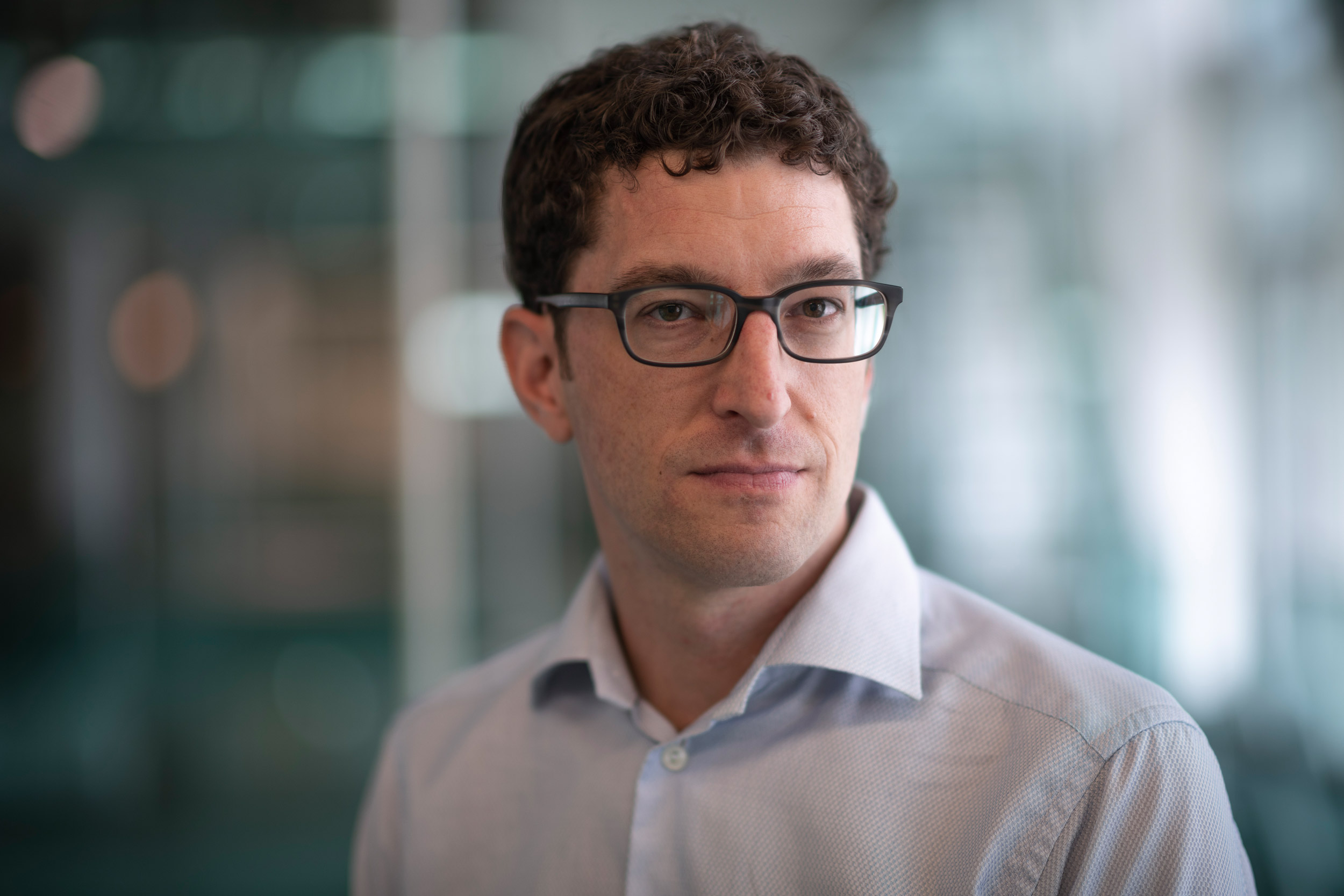Interview with
Nicolas Waespe, MD
Specialist in pediatrics (FMH), focus on pediatric oncology/hematology; researcher at the Institute of Social and Preventive Medicine (ISPM) at the University of Bern and at the University of Geneva.

© Picture Urs Jaudas
What exactly is clinical research?
Clinical research focuses on the whole person. This is in contrast to basic research, which tries to find out in the laboratory how diseases develop and how they can be treated. On the one hand, clinical research can be observational, involving the collecting and analysing of information from specific individuals, such as childhood cancer patients. In addition, there are clinical trials that examine prevention measures, examination methods and therapies as well as their effects and side effects in humans. Clinical research is of particular importance because it collects information directly from people in order to research the effectiveness of new therapies, for example.
Why do you think clinical research in the field of childhood cancer is particularly important?
Cancer is much rarer in children than in adults. Great progress in treatment has been achieved through good and close international cooperation between paediatric oncologists and researchers. Forms of cancer that were fatal for most children 50 years ago can now be cured in four out of five cases. Clinical research has to continue in order to cure more children with cancer. At the same time, two out of three cured children suffer late effects in the course of their lives due to the intensive cancer therapy. This is another area in which we need to improve through clinical research to give childhood cancer survivors a future with as few health problems as possible.
Who conducts clinical research in Switzerland and how is it organised in practice?
In Switzerland, all nine hospitals that treat children diagnosed with cancer are members of the Swiss Paediatric Oncology Group (SPOG). SPOG organises and monitors national and international clinical trials. Including children in clinical trials makes it possible to treat them with better adapted, gentler or new methods. This is particularly important where previous therapies have not been successful or have led to side effects.
What progress has been made in the field of clinical research in recent years?
Over the last 15 years, more and more treatment methods have been developed to treat particularly difficult-to-treat cancers or to reduce side effects. For example, drugs have been developed that specifically target genetic changes in cancer cells. Other approaches are methods that specifically use the immune system to destroy cancer cells. These modern therapies need to be tested in clinical trials to find out how well they work and what side effects they have.
What challenges does clinical research face?
In Switzerland, approximately 300 children and adolescents are diagnosed with more than 60 different types of cancer each year. These types of cancer are different from those that occur in adults. Thus, childhood cancer is one of the rare diseases. For financial reasons, the pharmaceutical industry uses far fewer resources for research with children than with adults. Money from the state – for example through research funding, hospitals and universities – helps, but is not enough to make childhood cancer research in Switzerland possible to a sufficient extent. That is why childhood cancer research relies heavily on donations from private individuals and foundations.
What risks does clinical research face as a result of these challenges?
Switzerland has to have sufficient financial resources available if we want to continue to make it possible for children with cancer to participate in national and international trials. This is the only way research into the causes and therapies of childhood cancer and the improvement of follow-up care following the end of therapy can be continued. If we can do this, Switzerland can be at the forefront of childhood cancer research with good organisation and networking.